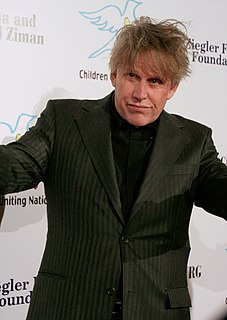A Quote by China Mieville
The best way to write a novel is to do it behind your own back.
Related Quotes
If you don't like my book, write your own. If you don't think you can write a novel, that ought to tell you something. If you think you can, do. No excuses. If you still don't like my novel, find a book you do like. Life is too short to be miserable. If you do like my novels, I commend your good taste.
Objectifying your own novel while writing it never really helps. Instead, I guess while you're writing you need to think: This is the novel I want to write. And when you're done you need to think: This is what the novel I wanted to write feels like and reads like and looks like. Other people might call it sweeping or small, but it's the book you chose.
Freedom is the freedom you choose, when you're not getting in your own way. The best way to start every day is to wake up and wash your face and look yourself in the mirror, right in the eyes of your reflection, and say, "don't get in my way." Because it's only when we get in our own way that we have to step back or step aside or step over here and not walk at all.
The best way to forget your own problems is to help someone else solve theirs.
The best way to prepare for life is to begin to live.
The best way to respond to wrong is to do what's right.
The better we know ourselves the less we'll criticize others.
The bigger your problems, the bigger your prayer should be.
I want to view my own efforts to write a novel as a function of my own artistic aspirations rather than a good career move. And I need to learn how to commit to characters for a longer time, to confront the limits of my own capacities for attention and compassion. That's what a writing career does, in the best instance: it allows you to keep after what you can't do.





































